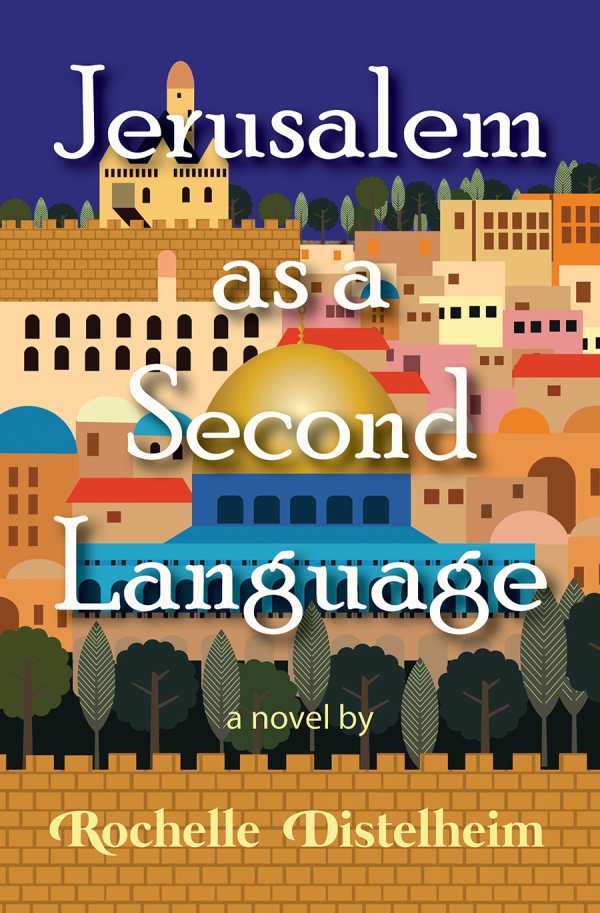Jerusalem as a Second Language
In Rochelle Distelheim’s absorbing novel Jerusalem as a Second Language, a family makes aliyah, considers assimilation, and tests its own bonds.
The Zalinikovs—Manya, Yuri, and their daughter, Galina—survived the Soviet Union, only to find themselves in new peril in its wake. They leave for Israel, hoping to lead a noncircumscribed Jewish life. But in Jerusalem, Yuri and Manya’s marriage, always a refuge in St. Petersburg, is tested by his desire to embrace their long-shelved religious practices, and by her insistence on staying Russian and secular.
Into the family’s circle enter a rich cast of sabras and fellow olim, including a rabbi with exalted personal aspirations and Asher, whose love may spare Galina from the IDF. All struggle, in some way, with what it means to be Jewish and Israeli, and with how to welcome those who are different.
The novel’s women are tough and subversive, pushing those around them toward more nuanced approaches to religion and life. In this involving mix, Manya takes the lead. She’s reluctant to note the beauty of the sunrise over the Hebron Hills; she hungers for the music and rhythms of Russia. But to please Yuri, she attends synagogue for the first time and avoids treyf foods. Just as she’s settling in, an almost critical error, and an act of violence, change her world once again.
Distelheim is variously incisive, funny, and poetic in approaching questions of religious practice and resistance. Her heroine, forced to learn Hebrew, remarks that it “fell from my lips more hiss than song” and regards religion as other: “somebody’s personal translation of the meaning of the universe wrapped up in fancy language [and] repeated numerous times with conviction.” But love, and faith in her relationships, compel Manya, and the novel, forward, making Jerusalem as a Second Language a sensitive novel about how religiosity is adapted in liminal spaces.
Reviewed by
Michelle Anne Schingler
Disclosure: This article is not an endorsement, but a review. The publisher of this book provided free copies of the book to have their book reviewed by a professional reviewer. No fee was paid by the publisher for this review. Foreword Reviews only recommends books that we love. Foreword Magazine, Inc. is disclosing this in accordance with the Federal Trade Commission’s 16 CFR, Part 255.

